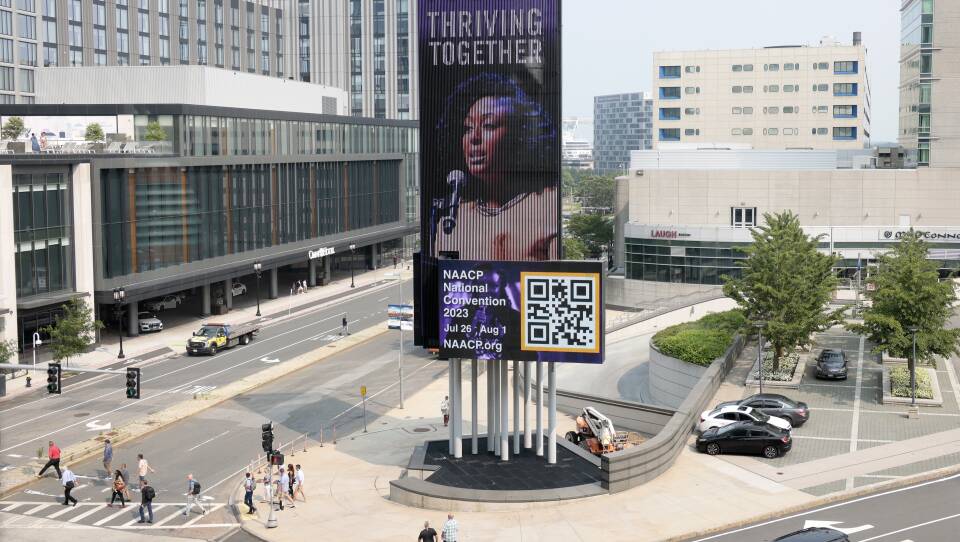The Boston Convention and Exhibition Center is abuzz with nearly 10,000 people for the 114th annual NAACP National Convention.
Each year, delegates from the nation's largest and most widely recognized civil rights organization gather to vote on policy platforms and also attend talks by political leaders and artists, among others.
It’s a time to strategize on an agenda that responds to the most pressing issues affecting issues around race and civil rights today. That includes affirmative action, reproductive rights and how history is taught in our schools.
For the public, this is the first time that the convention features The Hub, a free interactive experience celebrating Black culture and entertainment that is open to all.
“It's going to be an immersive experience for people to experience things from arts, entertainment, sports, health and wellness — all of that, and much more,” said Joclynne Bynoe, the convention’s events services manager.
And that includes an interactive site that will be staged like the NAACP Image Awards, where attendees will be able to take photos as if they were accepting an award themselves.
Key speakers include politicians like former Secretary of State Hillary Clinton, Reps. Ayanna Pressley of Massachusetts and Justin Jones of Tennessee, and Vice President Kamala Harris.
There will also be some celebrity sightings: Rapper Meek Mill, known for his 2012 song “Dreams and Nightmares,” and New England Patriots owner Robert Kraft, who are both in conversation with professor and scholar Henry Louis Gates Jr.
There’s also an emphasis on the next generation of civil rights leaders at the convention. Every year, the NAACP Convention holds its ACT-SO competition: Afroacademic, Cultural, Technological and Scientific Olympics.
The competition brings youth from all over the country to showcase their talents in everything from culinary arts to drawing and dance.
Dallas Wilkins, an 18-year-old from Newark, New Jersey, is competing in drawing and painting. He’s also thinking about how to channel his activism through his art. And as a rising high school senior, he said he was disappointed when he heard about the recent Supreme Court ruling on affirmative action.
“It's already hard for us to be equal in this society, especially when people look at us for our skin color and not really as people,” Wilkins said. “So when a door closes, it just saddens me because then it makes it harder for the next person.”
Other students highlighted climate change and justice in policing as pressing issues among their peers.
The NAACP convention was last held in Boston in 1982, right in the aftermath of the forced desegregation busing crisis of the 1970s.
Since then, a lot has changed, with the city having elected Mayor Michelle Wu, its first woman and person of color elected to the role, and the unveiling of The Embrace monument on the Boston Common in honor of Dr. Martin Luther King Jr. and Coretta Scott King earlier this year.
Many are hoping that this is a chance for the city to reintroduce itself, highlighting its present progress and its rich history in the civil rights movement.
Boston’s NAACP branch has also organized a tour for national delegates through Boston-based organizations including Fight for Community Voice in Mattapan, Black Men and Youth Build Leadership in Dorchester, and Streets of Hope in Roxbury.




